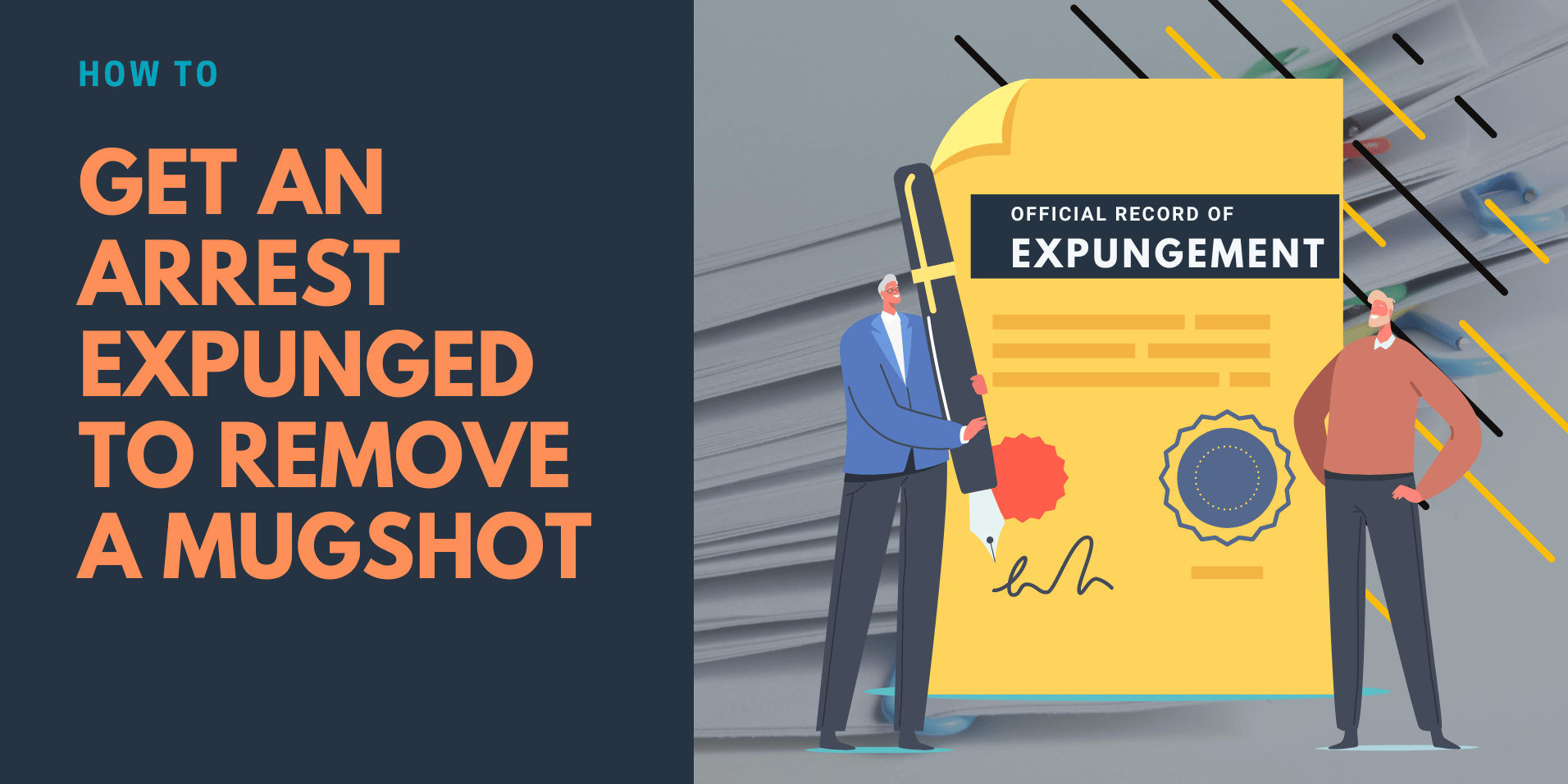Table Of Content
How to get your mugshot removed from the internet for FREE
If you are concerned that your arrest information or mugshot booking photo could already be visible to the public online, here are a some useful methods that can help you find your published mugshot.
- Search local and state government websites: Many government agencies maintain online databases of arrests and bookings that may include mugshots. Check the website of the local or state agency that made the arrest or booking to see if they have a database available.
- Use an online mugshot search engine: There are many websites and search engines that specialize in aggregating mugshots from various sources. These sites may require a fee or registration to access their databases.
- Search through public record databases: Some websites and databases specialize in aggregating public records, including mugshots. You can try searching through these sites to see if your mugshot is available.
- Contact the arresting agency: If you are unable to find your mugshot online, you can try contacting the law enforcement agency that made the arrest or booking to request a copy of your mugshot.
It's important to note that the availability and accuracy of online mugshot databases can vary, and not all information found online may be reliable or up-to-date. If you are concerned about the availability of your mugshot online, it may be helpful to talk to a licensed attorney who specializes in this area of law.
Why is it easier to find my mugshot on Bing than Google?
The Google Mugshot Algorithm Update, also known as the Mugshot Algorithm or the Mugshot Search Penalty, was an update to Google algorithm that was introduced in 2013 after an onslaught of negative publicity about the websites that publish criminal records and mugshots taken from State and County public records sites, largely sparked by the initiative of diehard investigative journalists.
The update was designed to address concerns over the practice of some websites that publish and profit from posting mugshots online. These websites would often feature individuals' mugshots prominently in search results, even when the individuals had not been convicted of a crime or had charges against them dropped.
The Mugshot Algorithm update aimed to reduce the visibility of these websites in Google search results by penalizing them. The update specifically targeted websites that published mugshots and charged fees for their removal, as well as websites that had a history of violating Google's Webmaster Guidelines.
As a result of the Mugshot Algorithm update, many websites that published mugshots saw a significant decrease in traffic and revenue. Some websites even shut down or pivoted to other business models.
It's important to note that the Mugshot Algorithm update only affects websites that violate Google's guidelines and does not address the larger issues surrounding the practice of publishing and profiting from mugshots. The legality and ethics of the practice continue to be debated, and some states have passed laws to regulate or limit the use of mugshots by private companies.
Getting your mugshot removed from the internet for free can be a challenging task, but here are some steps you can take:
4 Tactics to remove mugshots from the internet for free
- Contact the website or company: Start by contacting the website or company that is hosting your mugshot and request that it be removed. These websites can be notoriously difficult to get in touch with, much less to get to make modifications or delete records from their sites, which are supposed to be a search engine of arrests, local arrest articles covered by local news sites, police blotter, county Sheriff websites, jail rosters, etc. Be sure to provide them with the URL of the page containing your mugshot and any other relevant information they may require. Keep a record of your communications with the website or company.
- Check for relevant laws: Some states have passed laws that require the removal of mugshots under certain circumstances, such as if the charges were (a) dismissed, (b) expunged, (c) sealed, or (d) if the individual was acquitted (more on this below). Check the laws in your state to see if you have any legal options to get your mugshot removed.
- Contact the search engine: If the mugshot continues to appear in search engine results, contact the search engine and request that the page be removed from their search results. This process may take some time, and there is no guarantee that the search engine will comply with your request.
- Monitor your online presence: After taking steps to remove your mugshot, continue to monitor your online presence to ensure that the mugshot does not reappear on any other websites or search results. It's important to note that some websites or companies may charge a fee to remove your mugshot, and there is no guarantee that your mugshot will be removed even after taking the above steps.
If you are having difficulty getting your mugshot removed, you may want to consider seeking legal advice from an attorney who specializes in this area of law, or contacting reputation management company with personal reputation management services that include mugshot removal.

Using State Laws to Get Arrest Mugshots off the Internet is often the Best Solution for those who qualify for Expngement and Sealing Records
Without question, the most effective way for people to get mugshot website admins to take their removal request seriously, or even view it at all, is (2) above - i.e. using legal processes such as expunging or sealing it, and accompanying your request to the website administrators with proof of expungement, or whatever the relevant documentation in your state may be.
For that reason, we'll explore the basic steps to take to get started expunging criminal records for purposes of mugshot removal and online reputation repair.
Sealing vs Expunging Arrests from your Criminal History
Sealing and expunging a criminal record are two different legal processes that can help to limit access to or erase the information related to a criminal arrest or conviction.
Sealing a criminal record involves placing the record under court-ordered protection, making it unavailable to the public. However, the record will still exist and be accessible to certain individuals or organizations, such as law enforcement agencies and government agencies. Sealing a record may also involve limiting the use of the information contained in the record, such as for employment or housing purposes.
Expunging a criminal record involves completely erasing or destroying the record, as if the arrest or conviction had never occurred. Once a record is expunged, it is no longer available to the public or any government agency, including law enforcement. The process of expungement varies depending on the jurisdiction and the specific circumstances of the arrest or conviction.
In summary, sealing a record limits access to the information, while expunging a record completely erases the information from public and government access. However, the specific rules and requirements for sealing or expunging a record vary by jurisdiction and the type of offense, and it's important to consult with an attorney who specializes in this area of law to determine the best course of action.
If you find this article interesting you might also like our blog post titled How to Remove Court Case from Google Search and the Internet
How to get an arrest expunged from your record
The process of expunging a criminal record varies depending on the jurisdiction and the type of offense. In general, expungement involves petitioning the court to seal or destroy the records of the arrest, charges, or conviction.
Here are some general steps that can be taken to expunge a criminal record:
1. Determine if you are eligible: Expungement laws differ from state to state, and there are specific criteria that must be met before a record can be expunged. Check with your state or local court to find out if you are eligible.
2. Get the necessary forms: The court will have specific forms that need to be filled out for a criminal record expungement. These forms will vary depending on the jurisdiction.
3. Fill out the forms: Be sure to provide all necessary information, including the reason for the expungement request, details of the arrest or conviction, and any supporting documentation.
4. File the forms with the court: Once the forms are completed, they need to be filed with the court clerk along with any required filing fees.
5. Attend the hearing: Some jurisdictions may require a hearing before a decision is made on the expungement request. If a hearing is required, be sure to attend and present your case to the court.
6. Await the decision: After the hearing, the court will review the request and make a decision. If the request is granted, the court will issue an order to seal or destroy the records of the arrest, charges, or conviction.
Once you've officially expunged the arrest in question, you can (re)submit a mugshot removal request with sites that have it published
Keep in mind that criminal record expungement is a complex legal process, and in many cases may require the assistance of an licensed lawyer. It is important to consult with a professional who specializes in criminal record expungement to ensure the best chance of success.
Professional Mugshot Removal Services
Our expert team of online reputation repair and content removal professionals have developed a foolproof system for getting mugshot records and arrest information off the internet. Our mugshot removal service has helped thousands of people struggling with this embarrassing information appearing online permanently erase mugshots from the internet. We offer a full money back guarantee that our mugshot removal service will get your arrest record and mugshot deleted from Google, Bing and any websites that have it published it. Contact us today for a free consultation with an experienced reputation advisor.



